Books by Fellows
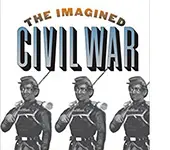
In this groundbreaking work of cultural history, Alice Fahs explores a little-known and fascinating side of the Civil War--the outpouring of popular literature inspired by the conflict. From 1861 to 1865, authors and publishers in both the North and the South produced a remarkable variety of war-related compositions, including poems, songs, children's stories, romances, novels, histories, and even humorous pieces. Fahs mines these rich but long-neglected resources to recover the diversity of the war's political and social meanings.
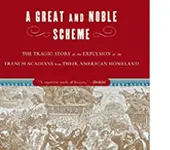
The right of neutrality; to live in peace from the imperial wars waged between France and England; had been one of the founding values of Acadia. But the Acadians' refusal to swear unconditional allegiance to the British Crown in the mid-eighteenth century gave New Englanders, who had long coveted Nova Scotia's fertile farmland, pretense enough to launch a campaign of ethnic cleansing on a massive scale. John Mack Faragher draws on original research to weave 150 years of history into a gripping narrative of both the civilization of Acadia and the British plot to destroy it.
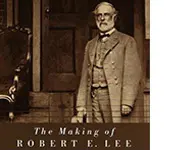
With rigorous research and unprecedented insight into Robert E. Lee's personal and public lives, Michael Fellman here uncovers the intelligent, ambitious, and often troubled man behind the legend, exploring his life within the social, cultural, and political context of the nineteenth-century American South.
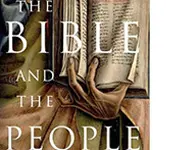
In the eleventh century, the Bible was available only in expensive and rare hand-copied manuscripts. Today, millions of people from all walks of life seek guidance, inspiration, entertainment, and answers from their own editions of the Bible. This illustrated book tells the story of what happened to the ancient set of writings we call the Bible during those thousand years.
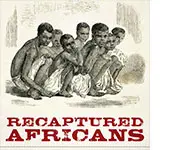
In the years just before the Civil War, during the most intensive phase of American slave-trade suppression, the U.S. Navy seized roughly 2,000 enslaved Africans from illegal slave ships and brought them into temporary camps at Key West and Charleston. In this study, Sharla Fett reconstructs the social world of these "recaptives" and recounts the relationships they built to survive the holds of slave ships, American detention camps, and, ultimately, a second transatlantic voyage to Liberia.
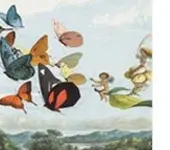
In Worlds Beyond, Laura Forsberg reads major works of fiction by George Eliot, Jane Austen, Charles Dickens, and Lewis Carroll alongside minor genres like the doll narrative, fairy science tract, and thumb Bible.
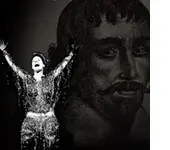
Situating the theater as a site of broad cultural movements and conflicts, Lisa A. Freeman asserts that antitheatrical incidents from the English Renaissance to present-day America provide us with occasions to trace major struggles over the nature and balance of power and political authority.
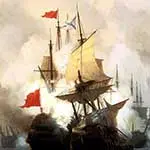
By the early 1800s, anywhere between one-third and one-half of all naval seamen serving in the North Atlantic had participated in at least one mutiny, many of them in several, and some even on ships in different navies. In The Bloody Flag, historian Niklas Frykman explores in vivid prose how a decade of violent conflict onboard gave birth to a distinct form of radical politics that brought together the egalitarian culture of North Atlantic maritime communities with the revolutionary era's constitutional republicanism.
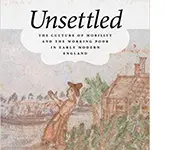
Migrants made up a growing class of workers in late sixteenth- and seventeenth- century England. In fact, by 1650, half of England's rural population consisted of homeless and itinerant laborers. Unsettled is an ambitious attempt to reconstruct the everyday lives of these dispossessed people. Patricia Fumerton offers an expansive portrait of unsettledness in early modern England that includes the homeless and housed alike.

In its 17th-century heyday, the English broadside ballad was a single large sheet of paper printed on one side with multiple woodcut illustrations, a popular tune title, and a poem. Inexpensive, ubiquitous, and fugitive—individual elements migrated freely from one broadside to another—some 11,000 to 12,000 of these artifacts pre-1701 survive, though many others have undoubtedly been lost. Since 2003, Patricia Fumerton and a team of associates at the University of California, Santa Barbara have been finding, digitizing, cataloging, and recording these materials to create the English Broadside Ballad Archive.
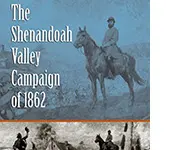
This volume explores the Shenandoah Valley campaign, best known for its role in establishing Thomas J. "Stonewall" Jackson's reputation as the Confederacy's greatest military idol. The authors address questions of military leadership, strategy and tactics, the campaign's political and social impact, and the ways in which participants' memories of events differed from what is revealed in the historical sources.
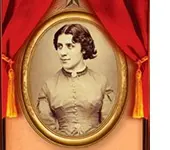
One of the most celebrated women of her time, a spellbinding speaker dubbed the Queen of the Lyceum and America's Joan of Arc, Anna Elizabeth Dickinson was a charismatic orator, writer, and actress, who rose to fame during the Civil War and remained in the public eye for the next three decades. J. Matthew Gallman offers the first full-length biography of Dickinson to appear in over half a century.
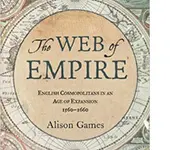
How did England go from a position of inferiority to the powerful Spanish empire to achieve global pre-eminence? In this important second book, Alison Games, a colonial American historian, explores the period from 1560 to 1660, when England challenged dominion over the American continents, established new long-distance trade routes in the eastern Mediterranean and the East Indies, and emerged in the 17th century as an empire to reckon with.
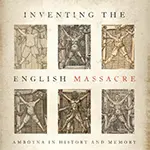
In its 17th-century heyday, the English broadside ballad was a single large sheet of paper printed on one side with multiple woodcut illustrations, a popular tune title, and a poem. Inexpensive, ubiquitous, and fugitive—individual elements migrated freely from one broadside to another—some 11,000 to 12,000 of these artifacts pre-1701 survive, though many others have undoubtedly been lost. Since 2003, Patricia Fumerton and a team of associates at the University of California, Santa Barbara have been finding, digitizing, cataloging, and recording these materials to create the English Broadside Ballad Archive.
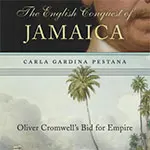
The English Conquest of Jamaica presents entrenched imperial fantasies confronting Caribbean realities. It captures the moment when the revolutionary English state first became a major player in the Atlantic arena.

Militarizing Outer Space explores the dystopian and destructive dimensions of the space age and challenges conventional narratives of a bipolar Cold War rivalry. Concentrating on weapons, warfare and violence, this provocative volume examines real and imagined endeavors of arming the skies and conquering the heavens. The third and final volume in the groundbreaking European Astroculture trilogy, Militarizing Outer Space zooms in on the interplay between security, technopolitics and knowledge from the 1920s through the 1980s. Often hailed as the site of heavenly utopias and otherworldly salvation, outer space transformed from a promised sanctuary to a present threat, where the battles of the future were to be waged. Astroculture proved instrumental in fathoming forms and functions of warfare’s futures past, both on earth and in space. The allure of dominating outer space, the book shows, was neither limited to the early 21st-century nor to current American space force rhetorics.

Propels the historicization of outer space by focusing on the 1970s, the Post-Apollo era of crisis and reconfiguration, utilizes an international and transdisciplinary perspective to explore the cultural history of outer space, and explores the reconfiguration of space imaginaries during the decade after the moon landings.
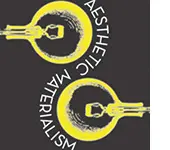
Aesthetic Materialism: Electricity and American Romanticism focuses on American romantic writers' attempts to theorize aesthetic experience through the language of electricity. In response to scientific and technological developments, most notably the telegraph, eighteenth- and nineteenth-century electrical imagery reflected the mysterious workings of the physical mind as well as the uncertain, sometimes shocking connections between individuals.

For many, the term "neoclassicism" has come to imply discipline, order, restraint, and a certain myopia. Leaving the term behind, this book radically challenges enduring assumptions about the art produced from the late 18th century to the early Victorian period, casting new light on appropriations of the classical body by British artists.
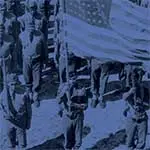
Since the first English settlers landed at Jamestown with the legacy of centuries of European warfare in tow, the military has been an omnipresent part of America. In The American Military: A Concise History, Joseph T. Glatthaar explores this relationship from its origins in the thirteen colonies to today's ongoing conflicts in the Middle East.
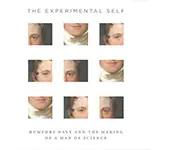
What did it mean to be a scientist before the profession itself existed? Jan Golinski finds an answer in the remarkable career of Humphry Davy, the foremost chemist of his day and one of the most distinguished British men of science of the nineteenth century.
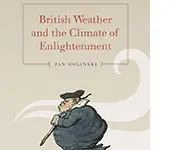
Enlightenment inquiries into the weather sought to impose order on a force that had the power to alter human life and social conditions. British Weather and the Climate of Enlightenment reveals how a new sense of the national climate emerged in the eighteenth century from the systematic recording of the weather, and how it was deployed in discussions of the health and welfare of the population.
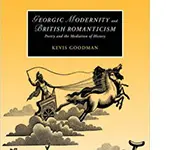
Kevis Goodman traces connections between georgic verse and developments in other spheres that were placing unprecedented emphasis on mediation from the late seventeenth to early nineteenth centuries. She expands the subject of the Georgic to broader areas of literary and cultural study—including the history of the feelings, print culture, and early scientific technology. Goodman maintains that the verse form presents ways of perceiving history in terms of sensation, rather than burying history in nature, an approach more usually associated with Romanticism.
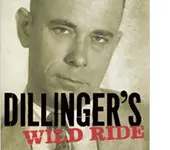
In Dillinger's Wild Ride, Elliott J. Gorn provides a riveting account of the year between 1933 and 1934, when the Dillinger gang pulled over a dozen bank jobs and stole hundreds of thousands of dollars. As Dillinger's wild year unfolded, the tale grew larger and larger in newspapers and newsreels, and even today, Dillinger is the subject of pulp literature, serious poetry and fiction, and film. Gorn illuminates the significance of Dillinger's tremendous fame and the endurance of his legacy, arguing that he represented an American fascination with primitive freedom against social convention.
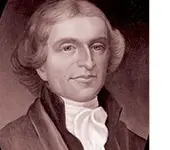
During the course of his short but extraordinary life, John Ledyard (1751–1789) came in contact with some of the most remarkable figures of his era: the British explorer Captain James Cook, American financier Robert Morris, Revolutionary naval commander John Paul Jones, Benjamin Franklin, Thomas Jefferson, and others. Ledyard lived and traveled in remarkable places as well, journeying from the New England backcountry to Tahiti, Hawaii, the American Northwest coast, Alaska, and the Russian Far East. In this engaging biography, the historian Edward Gray offers not only a full account of Ledyard's eventful life but also an illuminating view of the late eighteenth-century world in which he lived.
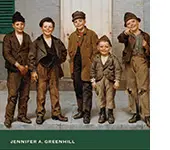
Playing It Straight: Art and Humor in the Gilded Age offers a stunning new look at late-nineteenth-century American art, and demonstrates the profound role humor played in determining the course of culture in the Gilded Age.
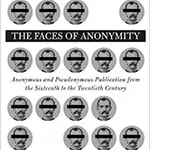
This pathbreaking collection of original essays surveys an important but neglected topic: anonymous publication in England for the Elizabethan age to the present. An impressive group of scholars analyzes a wide range of literary phenomena. The editor's introduction places the essays within the context of the historical trajectory of anonymous authorship.
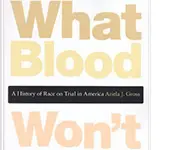
Unearthing the legal history of racial identity, Ariela Gross's book examines the paradoxical and often circular relationship of race and the perceived capacity for citizenship in American society. This book reminds us that the imaginary connection between racial identity and fitness for citizenship remains potent today and continues to impede racial justice and equality.
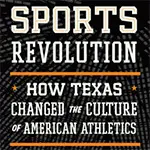
The story of Texas's impact on American sports culture during the civil rights and second-wave feminist movements, this book offers a new understanding of sports and society in the state and the nation as a whole.
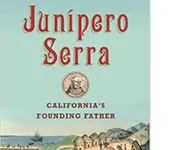
Steven W. Hackel's groundbreaking biography, Junípero Serra: California's Founding Father, is the first to remove Serra from the realm of polemic and place him within the currents of history. On the three-hundredth anniversary of Junípero Serra's birth, Hackel's complex, authoritative biography tells the full story of a man whose life and legacies continue to be both celebrated and denounced. Based on exhaustive research and a vivid narrative, this is an essential portrait of America's least understood founder.
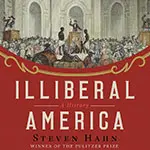
If your reaction to the January 6, 2021, insurrection at the Capitol was to think, 'That’s not us,' think again: in Illiberal America, a Pulitzer Prize–winning historian uncovers a powerful illiberalism as deep-seated in the American past as the founding ideals.
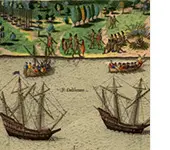
Drawing on archaeological studies, colonial documents from three empires, and Native oral histories, Joseph M. Hall, Jr., offers fresh insights into broad segments of southeastern colonial history, including the success of Florida's Franciscan missionaries before 1640 and the impact of the Indian slave trade on French Louisiana after 1699.
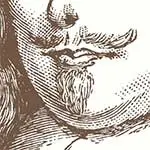
This book is a sweeping transatlantic history of Puritanism from its emergence out of the religious tumult of Elizabethan England to its founding role in the story of America.
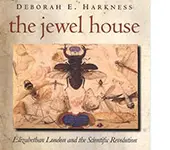
The book examines six particularly fascinating episodes of scientific inquiry and dispute in sixteenth-century London, bringing to life the individuals involved and the challenges they faced. These men and women experimented and invented, argued and competed, waged wars in the press, and struggled to understand the complexities of the natural world. Together their stories illuminate the blind alleys and surprising twists and turns taken as medieval philosophy gave way to the empirical, experimental culture that became a hallmark of the Scientific Revolution.
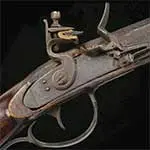
The revolutionary Ohio Valley is often depicted as a chaotic Hobbesian dystopia, in which Indians and colonists slaughtered each other at every turn. In Unsettling the West, Rob Harper overturns this familiar story.

This book uses amputation and prostheses to tell a new story about medicine and embodied knowledge-making in early modern Europe. It draws on the writings of craft surgeons and learned physicians to follow the heated debates that arose from changing practices of removing limbs, uncovering tense moments in which decisions to operate were made.
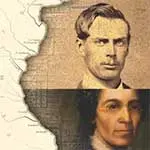
In this sweeping saga that spans empires, peoples, and nations, M. Scott Heerman chronicles the long history of slavery in the heart of the continent and traces its many iterations through law and social practice.
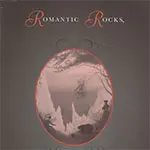
Noah Heringman maintains that British literary culture was fundamentally shaped by many of the same forces that created geology as a science in the period 1770–1820. He shows that landscape aesthetics―the verbal and social idiom of landscape gardening, natural history, the scenic tour, and other forms of outdoor "improvement"―provided a shared vernacular for geology and Romanticism in their formative stages.

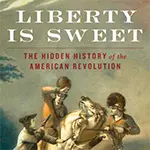
Using more than a thousand eyewitness accounts, Liberty Is Sweet explores countless connections between the Patriots of 1776 and other Americans whose passion for freedom often brought them into conflict with the Founding Fathers.
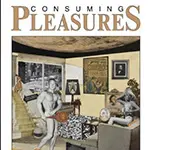
The New York intellectuals of the 1930s rejected any serious or analytical discussion, let alone appreciation, of popular culture, which they viewed as morally questionable. Beginning in the 1950s, however, new perspectives emerged outside and within the United States that challenged this dominant thinking. Consuming Pleasures reveals how a group of writers shifted attention from condemnation to critical appreciation, critiqued cultural hierarchies and moralistic approaches, and explored the symbolic processes by which individuals and groups communicate.
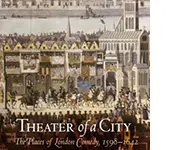
Arguing that the commercial stage depended on the unprecedented demographic growth and commercial vibrancy of London to fuel its own development, Jean E. Howard posits a particular synergy between the early modern stage and the city in which it flourished.
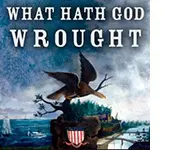
The Oxford History of the United States is by far the most respected multi-volume history of our nation. In this Pulitzer prize-winning, critically acclaimed addition to the series, historian Daniel Walker Howe illuminates the period from the battle of New Orleans to the end of the Mexican-American War, an era when the United States expanded to the Pacific and won control over the richest part of the North American continent
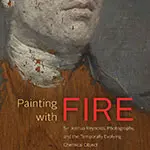
Painting with Fire shows how experiments with chemicals known to change visibly over the course of time transformed British pictorial arts of the long eighteenth century—and how they can alter our conceptions of photography today.
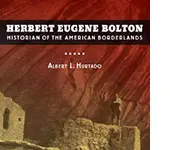
Herbert E. Bolton (1870–1953), a leading historian of the American West, Mexico, and Latin America, helped establish the reputation of the University of California and the Bancroft Library in the eyes of the world and was influential among historians during his lifetime, but interest in his ideas waned after his death. Now, more than a century after Bolton began to investigate the Mexican archives, Albert L. Hurtado explores his life against the backdrop of the cultural and political controversies of his day.
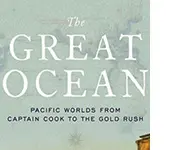
The Great Ocean draws on hundreds of documented voyages--some painstakingly recorded by participants, some only known by archeological remains or indigenous memory--as a window into the commercial, cultural, and ecological upheavals following Cook's exploits, focusing in particular on the eastern Pacific in the decades between the 1770s and the 1840s.
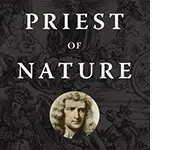
In Priest of Nature, historian Rob Iliffe introduces readers to Newton the religious animal, deepening our understanding of the relationship between faith and science at a formative moment in history and thought.
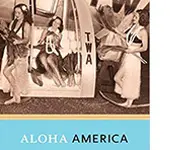
Aloha America reveals the role of hula in legitimating U.S. imperial ambitions in Hawai'i. Hula performers began touring throughout the continental United States and Europe in the late nineteenth century. These "hula circuits" introduced hula, and Hawaiians, to U.S. audiences, establishing an "imagined intimacy," a powerful fantasy that enabled Americans to possess their colony physically and symbolically. Meanwhile, in the early years of American imperialism in the Pacific, touring hula performers incorporated veiled critiques of U.S. expansionism into their productions.
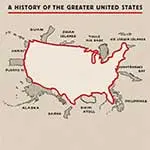
In How to Hide an Empire, Daniel Immerwahr tells the fascinating story of the United States outside the United States. In crackling, fast-paced prose, he reveals forgotten episodes that cast American history in a new light.
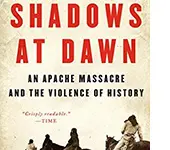
In April 1871, a group of Americans, Mexicans, and Tohono O'odham Indians surrounded an Apache village at dawn and murdered nearly 150 men, women, and children in their sleep. In the past century the attack, which came to be known as the Camp Grant Massacre, has largely faded from memory. Now, drawing on oral histories, contemporary newspaper reports, and the participants' own accounts, prize-winning author Karl Jacoby brings this perplexing incident and tumultuous era to life to paint a sweeping panorama of the American Southwest, a world far more complex, diverse, and morally ambiguous than the traditional portrayals of the Old West.